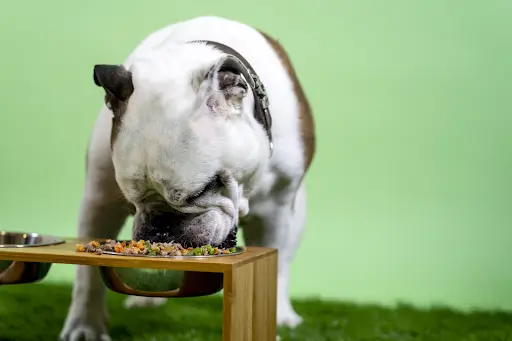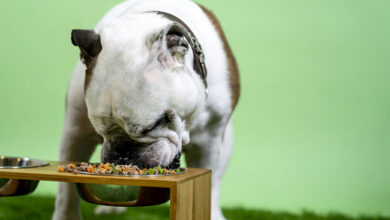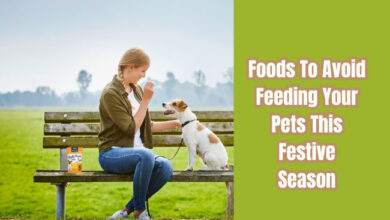
As a dog owner, you want the best for your furry friend. While it’s important to provide your canine companion with a balanced diet, you might be surprised to learn that there are some human foods you can safely share with them. So, here are six human foods that can be a healthy addition to your dog’s diet. Remember, moderation is key, and you should always consult with your veterinarian before introducing new foods to your pet’s menu.
1. Hot Dogs: A Quick and Nutrient-Packed Treat
When it comes to treating your dog to a special snack, consider hot dogs as an option that’s not only quick but also nutrient-packed. As a dog owner, you’re always on the lookout for ways to make your furry friend’s day a little brighter. Giving hot dogs as treats can be a delightful addition to your dog’s diet while keeping their health in mind. Of course, remember to consult with your veterinarian before introducing any new foods to your pet’s menu.
- Protein Boost: Hot dogs are a great source of protein, which is essential for your dog’s muscle development and overall health. They offer a flavorful change from regular dog food and can be particularly appealing during training sessions.
- Quick and Convenient: Hot dogs are a convenient option for busy pet owners. You can easily slice them into small pieces or use them as treats during obedience training. Their portability makes them a handy choice for on-the-go rewards.
- Variety in Texture: Dogs appreciate variety in their diet just like humans do. Hot dogs provide a different texture compared to their regular kibble or canned food, which can add some excitement to mealtime and keep your pup engaged.
2. Carrots: Crunchy and Nutritious Snacks
Carrots are a low-calorie vegetable that’s not only good for you but also for your dog. They are rich in vitamins and minerals like beta-carotene and fiber, which can help with digestion. Slice up some raw carrots into bite-sized pieces or give your pup a whole baby carrot to enjoy as a satisfying and nutritious snack.
- Dental Health: The natural crunchiness of carrots can help clean your dog’s teeth and reduce plaque buildup, contributing to better oral health.
- Cooked vs. Raw: While raw carrots are excellent for dental health, some dogs may find them challenging to digest. Slightly steamed or boiled carrots can be easier on the stomach while preserving their nutritional value.
- Calorie Awareness: Carrots are low in calories, making them a great choice for overweight dogs or as a guilt-free treat during training sessions.
3. Peanut Butter: A Nutty Delight
Many dogs love the taste of peanut butter, and it can be a great source of healthy fats and protein. Make sure to choose unsalted, unsweetened peanut butter and offer it in moderation. You can spread a small amount on a dog-safe toy or use it as a reward during training sessions. Just be cautious of xylitol, a sugar substitute that is toxic to dogs, so always check the ingredients.
- High-Fat Content: While peanut butter is a good source of healthy fats, it’s calorie-dense. Use it sparingly, especially for smaller dogs or those prone to weight gain.
- Xylitol Alert: Always double-check the ingredients for xylitol, a sugar substitute toxic to dogs. Opt for natural, unsweetened peanut butter to ensure your pet’s safety.
- Stuffing Toys: Peanut butter can be smeared inside puzzle or Kong toys to provide mental stimulation and alleviate boredom for your dog.
- Allergies: Be cautious if your dog has a history of food allergies. Peanut allergies are rare in dogs but can occur, so monitor for any adverse reactions.
4. Oatmeal: A Hearty Breakfast Option
Oatmeal is a wholesome human food that can also benefit your dog. It’s high in fiber and provides a good source of carbohydrates for energy. Cook plain oatmeal without any sugar, spices, or additives, and let it cool before serving to your dog. A small amount of oatmeal can be a comforting and filling addition to their diet.
- Digestive Benefits: Oatmeal’s soluble fiber content can aid in digestive health by regulating bowel movements and soothing an upset stomach.
- Moderation: While oatmeal is nutritious, it’s calorie-dense. Use it as an occasional treat or mix small amounts into your dog’s regular food to avoid excessive calorie intake.
- Avoid Sugars and Flavorings: Ensure that the oatmeal is plain and free of added sugars, sweeteners, or flavorings, as these can be harmful to your dog.
5. Blueberries: Tiny Superfoods
Blueberries are packed with antioxidants, vitamins, and fiber, making them a fantastic choice for your dog’s health. These tiny superfoods can support your dog’s immune system and improve their overall well-being. You can give them a few fresh or frozen blueberries as a treat or mix them into your dog’s regular food for an extra burst of nutrition.
- Antioxidant Power: Blueberries are rich in antioxidants, which can help combat free radicals and support your dog’s overall health, especially as they age.
- Portion Control: While blueberries are healthy, they are also naturally sweet. Serve them in moderation to avoid excessive sugar intake.
- Allergy Caution: Like any new food, monitor your dog for potential allergies or digestive issues when introducing blueberries.
6. Sweet Potatoes: Nutrient-rich and Tasty
Sweet potatoes are a nutritious option for your dog that provides vitamins, fiber, and antioxidants. Bake or steam sweet potatoes, remove the skin, and cut them into small, manageable pieces. This can be a delightful addition to your dog’s meals, offering a tasty and vitamin-packed side dish.
- Rich in Fiber: Sweet potatoes’ fiber content can support healthy digestion and help regulate blood sugar levels in diabetic dogs.
- Vitamins and Minerals: These root vegetables are packed with vitamins A and C, as well as various minerals, contributing to your dog’s overall well-being.
- Preparation: Cooked sweet potatoes are the safest option, as they are easy to digest and less likely to cause digestive upset compared to raw sweet potatoes.
- Portion Control: Like any treat, portion size matters. Serve sweet potatoes in moderation to maintain a balanced diet for your dog.

Incorporating safe human foods into your dog’s diet can add variety and nutrition to their meals. Remember to introduce new foods gradually and in moderation, as some dogs may have sensitivities or allergies to certain ingredients. Additionally, always consult with your veterinarian before making any significant changes to your dog’s diet. By responsibly offering these six human foods, you can enhance your dog’s diet and keep them happy and healthy.



